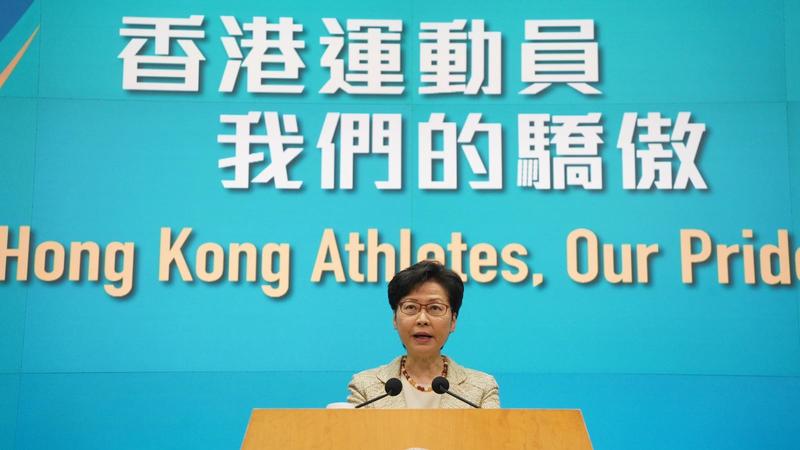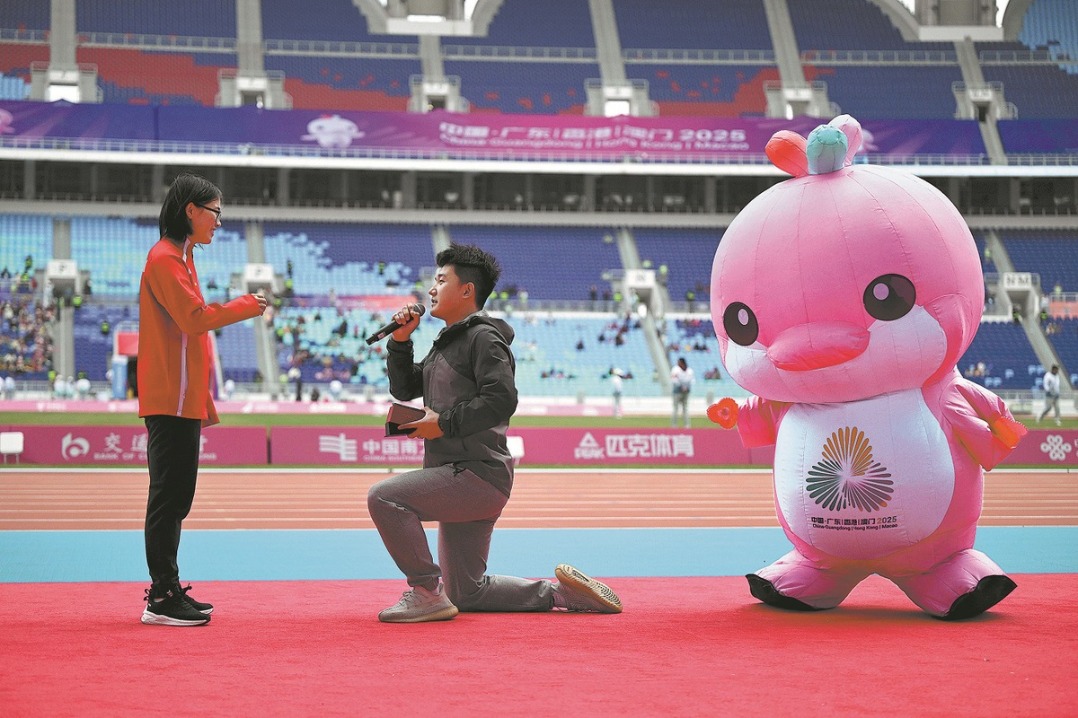A sports city to create Olympic stars


Following the good results at the Olympics, Hong Kong Chief Executive Carrie Lam Cheng Yuet-ngor announced in August five new measures to promote the sustainable development of sports in the city. The moves include the proposed allocation of HK$990 million to expedite the Hong Kong Sports Institute's new building project; the joint establishment of a HK$300 million fund with the Jockey Club Charities Trust to enhance the competitiveness of athletes at international events in the coming few years; and the promotion of sports as a career, a profession and an industry.
Despite the efforts, some industry players say there is still much to be improved.
As a small city with scarce land resources and a chronic shortage of recreational and sports facilities, Hong Kong has only 61 11-a-side soccer fields provided by the Leisure and Cultural Services Department — almost 13 fewer than the 73.9 recommended in the Hong Kong Planning Standards and Guidelines for the provision of recreational and sports facilities.
"Our public swimming pools are too crowded on weekends, while private pools are few in number and mostly small, and hotel swimming pools are too expensive for the average person," said Joemary Leung, a fitness trainer and founder of My Fitnature, a company operating sports clothing business.
"Some of the LCSD fitness facilities are too outdated and not diverse enough. People are reluctant to rebook after having used them once," she said.
But there's good news in the pipeline. A new 28-hectare landmark, the Kai Tak Sports Park, which can hold 50,000 spectators, is expected to be completed by 2023. It'll include a 10,000-seat indoor sports center, a 5,000-seat public sports ground, a harbor-front promenade, a variety of retail and dining choices, diverse public spaces and children's playground facilities. On days when no events are planned, people can use these facilities.
Meanwhile, the State Council has approved the co-hosting of the 2025 National Games by Guangdong province and the Hong Kong and Macao SARs. The Kai Tak Sports Park, with its advanced hardware facilities, is expected to be the main venue for the 2025 National Games.
The co-hosting of the National Games is fantastic, as it is a good way to deepen the integration in the region, Leahy said. "We can use each other's venues, compete together and bring the Games closer to Hong Kong people, and better integrate Hong Kong into the Greater Bay Area."
She said there are many opportunities for collaboration and exchanges in the Greater Bay Area, including technology research and development.
When sports technology is developed for elite athletes, it can be used for the whole society as well, Leahy said.
"Some of the things we learn about how elite athletes recover from injuries can be used to help the public recover in a similar way. Some of the information we learn in sports technology can be very easily adopted for use in the community."
"This is a great opportunity for Hong Kong to become more aggressive in developing sports as an industry, and offer products for the market, as well as to promote the professionalism and industrialization of sports," Leahy said.
Today's Top News
- UN envoy calls on Japan to retract Taiwan comments
- Innovation to give edge in frontier sectors
- Sanctions on Japan's former senior official announced
- Xi stresses importance of raising minors' moral standards
- Coordinated reform key to country's growth
- Shandong gives new life to traditions






























